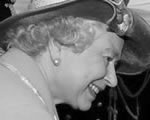 Go to main content
Go to main content
Archive Website of the UK government
Please note that this website has a UK government accesskeys system.
Main menu
Page menu
Government, citizens and rights

The Commonwealth

The Commonwealth is a voluntary association of independent countries, nearly all of which were once British territories. There are 53 members including the United Kingdom, which co-operate in the common interests of their people.
Principles and aims
The Commonwealth promotes international peace and security, democracy, liberty and equal rights, as well as economic and social development. It opposes all forms of racial discrimination.
It represents nearly two billion people – almost a third of the world's population – from a wide range of faiths, races, cultures and traditions.
The Commonwealth does not have a formal charter or constitution. Its structure is based on unwritten and traditional procedures, but it is guided by a series of agreements on its principles and aims. These are Declarations or Statements which have been issued by Commonwealth Heads of Government at various summits.
Head of the Commonwealth
The Queen is Head of the Commonwealth. This is a symbolic and unifying role, which reinforces the links by which the Commonwealth joins people together from around the world.
The Queen and other members of the Royal Family regularly visit Commonwealth countries. The Queen also has regular meetings with Heads of Government from Commonwealth countries, and attends the Commonwealth Day celebrations in London every year, on the second Monday in March.
Commonwealth realms
The Queen is also Head of State in the UK and 15 other independent states, their overseas territories and dependencies. These countries, known as Commonwealth realms, are:
- Antigua and Barbuda
- Australia
- The Bahamas
- Barbados
- Belize
- Canada
- Grenada
- Jamaica
- New Zealand
- Papua New Guinea
- St Christopher and Nevis
- St Lucia
- St Vincent and the Grenadines
- Solomon Islands
- Tuvalu
In each country where she is Head of State, The Queen is represented by a Governor-General, appointed by her on the advice of the ministers of the country concerned, and independent of the UK government.
In the overseas territories, the Queen is usually represented by governors responsible to the UK government for the administration of the countries in which they serve.
Commonwealth Secretariat
The Commonwealth Secretariat, based in London, is the main intergovernmental agency of the Commonwealth. It helps to organise the Commonwealth Heads of Government Meeting (CHOGM), which takes place every two years in a different Commonwealth country.
The Secretariat also helps to organise ministerial meetings and other conferences. It administers assistance programmes agreed at these meetings, including those of the Commonwealth Fund for Technical Co-operation, which provides expertise, advisory services and training to developing countries in the Commonwealth.
Commonwealth Games
The Commonwealth Games are a friendly, world class, multi-sports event, held every four years. They are open to eligible competitors from all Commonwealth nations.
Although the United Kingdom is a single Commonwealth country, England, Scotland, Wales, Northern Ireland, Guernsey, Jersey and the Isle of Man all compete in the Games as separate nations.
The 2002 Commonwealth Games were hosted in Manchester. This was the biggest sporting event ever held in the UK, with more than 5,000 athletes and team officials taking part in 17 sports.
The 2006 Games were in Melbourne, Australia. The 2010 Games will be in Delhi, India, and the 2014 Games will be held in Glasgow, Scotland.
 Facebook
Facebook Twitter
Twitter StumbleUpon
StumbleUpon Delicious
Delicious Reddit
Reddit
